Jack Paar

Host • Actor
Birth Date: May 1, 1918
Death Date: January 27, 2004 — 85 years old
Birth Place: Canton, Ohio
Though often less cited in the history of television talk shows than Johnny Carson, his successor to the host chair on "The Tonight Show" (NBC, 1954- ), Jack Paar was perhaps the most influential figure in the development of the medium. From 1952 to 1956, Paar offered a smart, witty and frequently live-wire alternative to the staid promotional parade that comprised talk and variety shows of the period.
A relaxed presence at his desk or on his trademark stool, Paar invited audiences to join him in discourse with leading figures from entertainment, society, and politics, all of whom treasured his intelligence and, more importantly, willingness to listen rather than orchestrate the conversation. However, Paar suffered mightily for his efforts: a deeply emotional man, he quit "Tonight" in tears over network censorship, which earned him a reputation as overly sensitive, at best - at worst, potentially unstable.
After leaving "Tonight" in 1965, he would return to network TV twice more in the late 1960s and early 1970s, but left both with disinterest in pursuing complacent, content-free programming. His contributions to talk shows and the medium as a whole were paid fitting tribute in the years prior to his death in 2004, and his reputation as a non-conformist who made television fit his vision remained untouched in the years that followed.
Jack Harold Paar was born May 1, 1918 in Canton, OH, the son of Howard Paar, a division superintendent for the New York Central Railroad, and his wife, Lillian. He was raised in Jackson, MI, where his childhood was marked by a series of personal adversities, from the deaths of an older brother and best friend to a bout with tuberculosis at the age of 14. Paar also stuttered, which road blocked his dream to become a radio personality.
He cured his speech impediment by putting buttons in his mouth and reading aloud, and rebuilt his strength after recovering from tuberculosis by working on a railroad gang. By the time he was 16, Paar had left school and was ready for his life as an adult. He began working in radio in the 1930s, serving as a disc jockey and comic at stations throughout the Midwest and Northeast.
In 1942, Paar was drafted into the Army, where he was assigned to Special Services, a non-combat unit that provided entertainment for troops. Stationed in the South Pacific, he earned notoriety as a clever emcee with a knack for impersonating ranking officers.
After his demobilization, Paar returned to radio, where he worked as a fill-in for the popular "Breakfast Club" program. His first big break came in 1947 when Jack Benny selected him to serve as the summer replacement for his top-rated Sunday night comedy show. Audience response to Paar was so strong that Benny's sponsor, the American Tobacco Company gave him his own show in the fall.
However, in a move that presaged numerous events throughout Paar's career, he refused to accept their suggestion for a weekly running gag, citing it as the sort of tired humor practiced by Fred Allen or Benny himself. The sponsor canceled the show, which branded Paar as the sort to bite the hand that fed him, a reputation that would dog him throughout his professional life.
For a brief period, Paar was a contract player for Howard Hughes and RKO Pictures. He made his debut as the emcee in "Variety Time" (1948), a collection of vaudeville acts, and performed similar duties for another show of that ilk called "Footlight Varieties" (1951). His film career was brief and undistinguished save for a turn as Marilyn Monroe's boyfriend in the 1951 comedy "Love Nest."
He was soon back on radio, hosting "The $64 Question" for a period before making the leap to television in 1952 with the short-lived quiz shows "Up to Paar" (NBC, 1952) and "Bank on the Stars" (CBS/NBC, 1953-54), as well as replacing Walter Cronkite on "The CBS Morning Show" (CBS, 1954).
Pundits noted his string of failures with some dark glee, but Paar's tenacity eventually paid off with a replacement job for Arthur Godfrey on his top-rated "Arthur Godfrey and His Friends" (CBS, 1949-1957) series. The following year, he reached the apex of his career when NBC asked him to become the host of their variety show "Tonight" after the departure of Steve Allen.
Under Paar's stewardship, "Tonight Starring Jack Paar," as the series was soon known, became not only one of the top-rated shows on television but also something of an event due primarily to Paar himself. He strove to push the talk show format into intelligent and entertaining discourse rather than a string of acts in vaudeville style and did so by paring down the format to simple discussion with interesting and entertaining guests.
Instead of the usual parade of actors promoting their latest effort, viewers would tune into Paar's show to see the likes of President John F. Kennedy, Richard Nixon, William F. Buckley, and Muhammad Ali. Paar would also, on occasion, display a mischievous streak by pairing the likes of Ali and Liberace on the same broadcast, or Jayne Mansfield with Zsa Zsa Gabor and then sit back and watch their abundant personalities take over the show.
He also surrounded himself with fascinating regulars like actor Peter Ustinov, the brilliant but deeply neurotic Oscar Levant, and comic Cliff Arquette in his folksy "Charley Weaver" character. Paar also gave such talents as Woody Allen, Bill Cosby, Mike Nicholas and Elaine May, and Carol Burnett early exposure to a national audience, and featured the likes of Dick Cavett, Garry Marshall, and humorist Jack Douglas on his writing staff.
Such an abundance of quality earned "Tonight Starring Jack Paar" back-to-back Emmys for Outstanding Variety, Music or Comedy Series in 1957 and 1958.
But Paar was also a controversy magnet, due in part to his own personality. He drew brickbats early in his tenure for granting a 1959 interview to Cuban leader Fidel Castro and feuded publicly with such entertainment sacred cows as Ed Sullivan and Walter Winchell. But it was his abrupt departure from the show in 1960 that earned the most headlines.
On Feb. 10, 1960, NBC pre-empted a portion of the show during which Paar told a mild joke about a "W.C" (water closet) that the network considered offensive. They failed to inform Paar of their decision, and the following evening, he tearfully announced that he was leaving "Tonight" and abandoned his seat in mid-broadcast. He traveled the country for the next few weeks while his disappearance made national headlines.
Finally, on March 7, he returned to the show with apologies to his audience for his "childish" decision. Though his popularity continued to remain high, audiences began to tune in to the program to see if and when Paar would next break down.
Paar would remain with "Tonight" for another two years before he announced that he could no longer handle the workload of a nightly program. NBC quickly offered him his own weekly show, "The Jack Paar Program" (NBC, 1962-65), which brought him back to his roots as a vaudeville emcee by presenting acts and personalities from around the world, from Albert Schweitzer in Africa to clips of the Beatles that aired one month before their history-making turn on "The Ed Sullivan Show" (NBC, 1949-1971).
He would remain with the show for three years before again announcing that he was leaving television in 1965. He would remain a sporadic presence on specials for the next half-decade but was, for the most part, semi-retired thanks to the proceeds from the sale of a television station he owned in Maine.
He was briefly lured back to primetime in 1973 as a host for "Jack Paar Tonight," which was part of "ABC's Wide World of Entertainment" (ABC, 1973-76). It lasted just a year before Paar quit over its frequent time schedule changes, as well as his inability to relate to newer acts and personalities. He would remain an infrequent but favored guest on talk and variety shows for the better part of the next two decades before emerging to receive a long-overdue tribute from the Museum of Broadcasting in 1984.
NBC would fete him two years later with "Jack Paar Comes Home" (1986) and "Jack Paar Is Alive and Well" (1987), a pair of primetime specials that featured kinescoped clips from "Tonight" and his weekly series. The "American Masters" (PBS, 1986- ) series produced two specials on Paar, 1997's "Jack Paar: As I Was Saying " and "Smart Television" (2003),which featured interviews with many of the celebrities whose rise to fame was helped by appearances on Paar's shows.
After the NBC specials in the 1980s, Paar remained largely out of sight. His health was in decline following triple bypass heart surgery in 1998. In 2003, he suffered a stroke that further hampered his well-being. The following year, Paar died at his Connecticut home on Jan. 27, 2004.
By Paul Gaita
Credits

Jack Paar: Psychiatry Terms
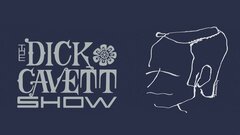
The Dick Cavett ShowStream

A Funny Thing Happened on the Way to Hollywood
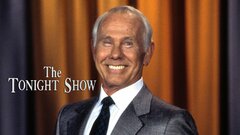
The Tonight Show Starring Johnny CarsonStream
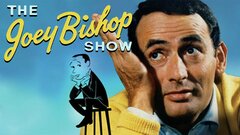
The Joey Bishop ShowStream

The Wonderful World of Jack Paar

Ford Startime

The Polly Bergen Show

The Tonight Show
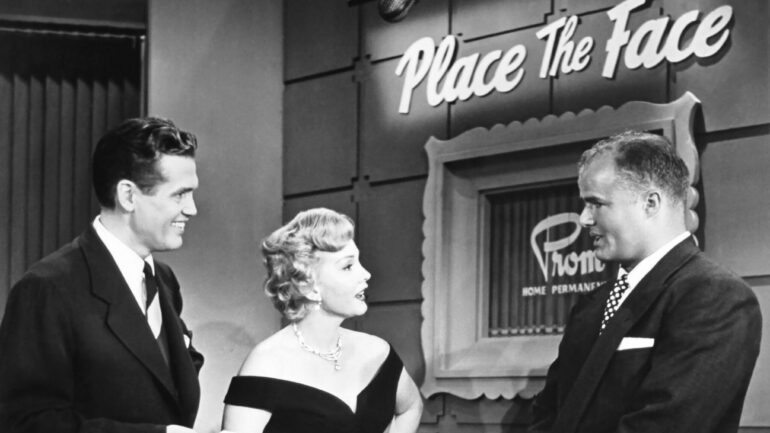
Place the Face

Down Among the Sheltering Palms

Up to Paar

Love Nest
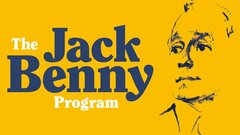
The Jack Benny ProgramStream
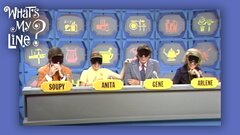
What's My Line?Stream

Walk Softly, Stranger

Easy Living





